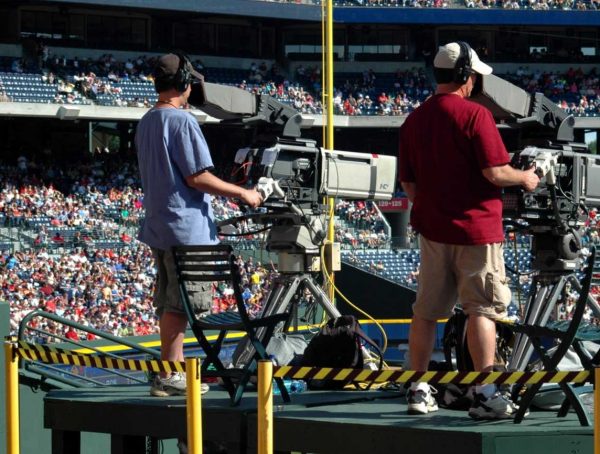If you dream of covering buzzer-beaters, touchdowns, and local sports heroes, join the club. Sports journalism is one of the most competitive beats in local TV news—and the jobs are few and far between.
At Gray Television, a major broadcast group with more than 10,000 employees, there were only 11 sports job openings on March 20 of this year.
“We see hundreds of applicants for every job,” said Stephen Crews, who helps oversee recruitment for Gray. For a single sports job in Atlanta, Crews said there were 650 applicants. He warns against focusing on landing that first job in a major market because you’ll be setting yourself up for disappointment. “Don’t be afraid to go where the jobs are—small and medium markets are often the best places to start.”
Crews also recommends getting your foot in the door by starting with a news beat. Just ask Alyssa Lyons, who landed a sports director role in Augusta, Georgia, after first working in news. While she was a news reporter she jumped at any opportunity to cover sports—even during odd shifts—and used that persistence to build a path into the sports department. Lyons emphasizes that building relationships with news directors and showing your versatility can open doors to the sports desk.
Sports internships are also very competitive. Jennifer Dale, Vice President of Recruiting for Gray Television, suggested that interning in the fall or spring and staying away from targeting only the big cities is a good strategy.
“Smaller markets give you more opportunities to do real work,” she said. “And don’t forget to include a reel with your resume. Show your hustle, your passion, and your ability to tell a story.”
Showcasing Yourself
Crews said many sports reporter reels emphasize the wrong elements. Here is his list of Dos and Don’ts:
- Don’t include game highlights.
- Don’t fill your reel with play-by-play.
- Do show how well you can tell stories.
- Do focus on local sports stories.
Still looking for an edge? Crews and Dale suggest building your social media presence. A strong following can help demonstrate your ability to engage an audience—something that’s increasingly important for on-air talent in sports and news.
When it comes to the future of sports journalism, Crews said there is reason to be optimistic. Gray has recently been creating regional sports networks and securing rights to broadcast various pro and semi-pro sports leagues.
Alison Posey, a sports reporter at WCTV in Thomasville, Georgia, offered a final point. “Don’t let people sell you on a market size. Go where you’re wanted and where you can grow and thrive.”






